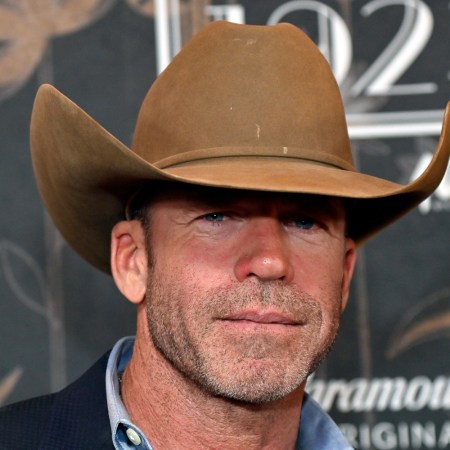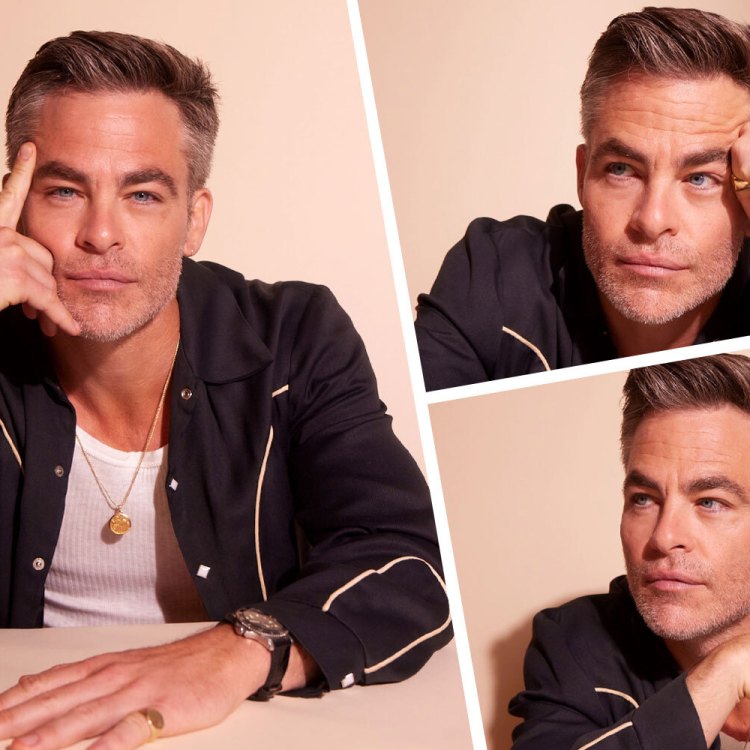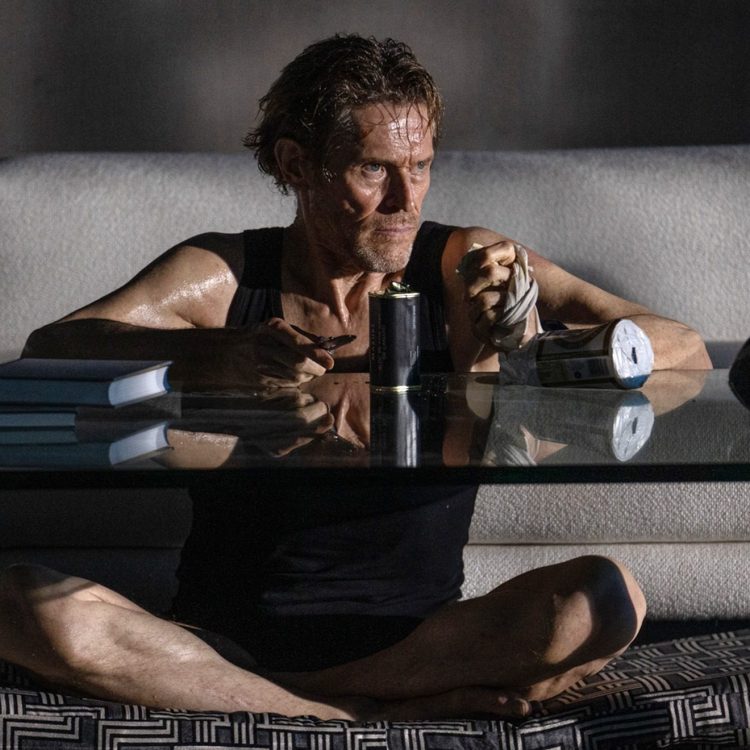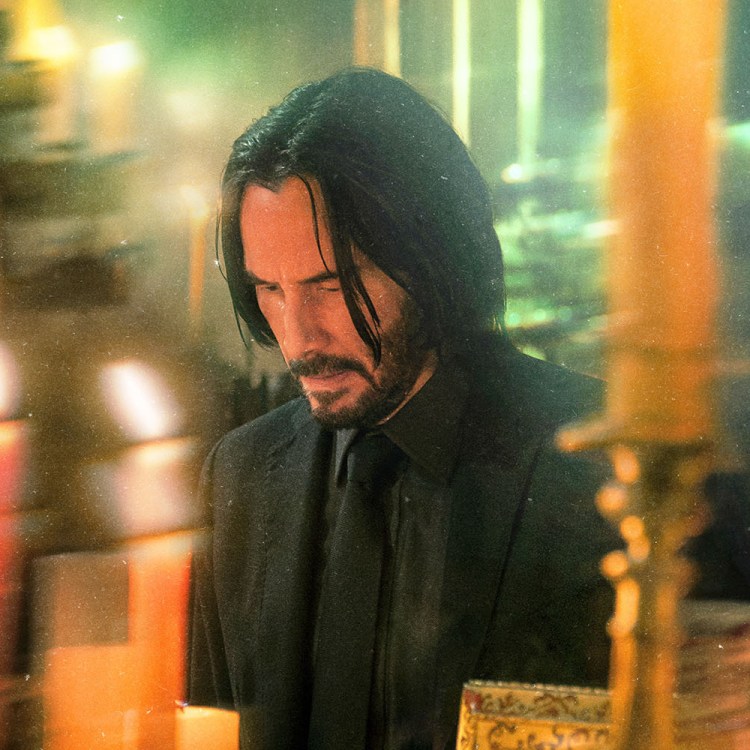Leading the new film Men is a woman, the Jessie Buckley-played widow Harper Marlowe, who finds herself in a situation all too familiar to heroines of horror: something’s out to get her, and she’s not sure what. She made her first mistake by going for a solo holiday to a handsomely appointed manor in the English countryside, its seclusion and thick-hanging atmosphere the genre’s traditional invitation for peril. She picks up a foreboding vibe from the house’s keeper, a proper old bloke by the name of Geoffrey, compounded as she notices that all the inhabitants of this small town share his (that is, Rory Kinnear’s) face. A glowering soccer hooligan, an insouciant schoolboy, a lech of a vicar, and a handful of others round out an ensemble of doppelgängers sharing in a hostility just faint enough for Harper to question whether it might be chilly Limey manners. Her waking Fregoli delusion morphs into a full-blown nightmare once she encounters Kinnear’s most frightful form, a disfigured ghoul of the zombie genus known in Pagan mythology as The Green Man. Talk about needing a vacation from your vacation!
Throughout this harrowing ordeal, a foe far more difficult to evade haunts Harper, striking in the quieter moments between offensives from the Kinnear-headed horde. Grief is the real monster lying in wait for her, formidable in its inescapable abstraction, though that same quality doesn’t always make for grabby visual representations. Director Alex Garland compensates with gradually expanding flashbacks that render Harper’s inner anguish with literalist clarity, showing us the fateful afternoon that her husband (Paapa Essiedu) leapt to his death from their London apartment. The preceding argument — ignited by her request for divorce, escalating to his not-so-idle threats of suicide, and peaking in an outburst of violence against her — plays out in Harper’s mind over and over, bathed in an orange glow stuck in time like amber. Even as she’s fighting for her life against evil British ump-tuplets and their demonic godhead, the dramatic stakes pertain to the ongoing personal struggle Garland won’t let us forget, these two planes of conflict fused in a grand finale of ornate bodily mutilation.
Say it with me now: It’s Actually About Trauma, a 101-course insight turned meme by a recent uptick in movies more invested in developing their subtext than massaging it into story. Directors of pop-leaning cinema have taken to trotting out the T-word and similarly analytical language in press appearances to confer a higher air of creative maturity on their work; sometimes, it’s just gum-flapping meant to add some substance to the empty calories of popcorn, but just as often, it’s an accurate description of a narrative hung up on themes while fundamentals fall by the wayside. The output of the Marvel factory has grown unbearably tedious in large part because characters must spend so much time moping about their fallen comrades whenever they aren’t stopping Blorpo the Obliterator or whoever. In the foggy, nocturnal realm of scary movies, this tendency has germinated into an entire subcategory I like to call “metaphorror,” a close cousin to the vague, nonsensical classification of “elevated horror.” Men presents the latest and most tidily illustrative example, its fascination with its own faux-profundities superseding the essential formal ingenuity that gets things screaming. Like Harper’s getaway-turned-hell-house, the film’s well-appointed surfaces cover up an unsteady foundation.
In the sense that all works of genius are partially responsible for the lesser imitators they inspire, the most accurate square one for metaphorror would be triangulated as Nicolas Roeg’s 1973 masterpiece Don’t Look Now. Bereaved parents Donald Sutherland and Julie Christie head to Venice to mourn the loss of their drowned child, the dad plagued by ambiguous visions of his own future commingling with the memory of discovering his daughter’s watery grave. While the final shots expose the assailant who’s been stalking him all along, up to that point, unorthodox editing gives the impression that he’s at the mercy of some intangible essence with internal origins. Disorienting and insidious in the subtle way it creeps into your subconscious, the film integrates its more cerebral suggestions — about the ambiguity of our recollections, about color, about sexuality — into a stylistic framework that still operates on the gut level.
No horror fan would ever condemn figurative writing as a whole, for no other reason than nothing would be left. From its earliest beginnings in literature, the genre has worked its dark magic by transmogrifying our everyday fears into outsized external forces that can be fought and conquered. However fanciful the villain, they had a gnarled foot in reality, from Dracula (an Eastern European aristocrat come to feast upon the working-class xenophobes of England) all the way to Freddy Krueger (fear itself made corporeal by our willingness to believe). Fast-forwarding to today, the gravest danger facing horror protagonists increasingly seems to be getting crushed to death by heavy-handedness. In Halloween Kills, Netflix’s reboot/sequel Texas Chainsaw Massacre, the latest installment of the Scream franchise and a handful of titles not yoked to a franchise (2020’s ponderous, lugubrious The Lodge slouches to mind), the baddies take a back seat to the messages about gentrification or cycles of violence or, yes, trauma. Yet so much of the jabbering about What It All Means proffers little to say, and the taken-for-granted capacity to terrify suffers for it.
It was inevitable that generation after generation would attempt to reproduce Roeg’s stroke of brilliance, tempted by the chance to have their art-film cake and eat it with the immediacy of genre film’s visceral responses, too. Garland has heretofore specialized in enriching his potent blend of horror and sci-fi with higher-brow subjects of fascination, like the fantastic potential of deviant biology (as in Annihilation) or the finer points of Asimovian techno-ontology (as in Ex Machina). With Men, he drops out of science class for a folkier milieu and more primal set of interests to go with it. Motivated as much by heartbreak for her husband’s loss as resentment for his abuse, Harper’s persisting angst takes shape in the looming townspeople that reiterate her late spouse’s worst behaviors. After having a cathartic scream in an abandoned church, Harper’s harassed first by a kid who calls her a “stupid bitch” outright, and then the presiding minister negs her in a more roundabout way by foisting guilt on her for a tragedy she’s come to see with clear eyes. We sample every flavor of misogyny, from manipulation and gaslighting to the final act’s onslaught of physical menace.
This isn’t a particularly complex intellectual premise, though Garland adds some heft to it by expanding to an eon-spanning scope, positing Harper and the penis-waggling wraiths tormenting her as the latest contestants in an eternal battle of the sexes dating back to Lilith in Biblical mythology and the Green Man in pre-Christian lore. A showstopping monologue from the Kinnear-played man of the cloth lays out this thesis in baroque Scripture-ese, but Garland prefers to let his hazy montages of loose imagery do the talking for him. Floating dandelion seeds, pitch-black tunnels, ghastly stone carvings and close-ups of verdant forests swirl in interminable interstitials of uncertain function and effect. When Roeg did this — and Garland gives the homage away with minutes left on the clock, outright purloining the stuttered cross-cuts creating a messy suture between scenes — he was calculated and precise, hiding dashes of red unsettling to the subconscious in the carefully arranged peeks at Sutherland’s jumbled mental interior. The oneiric slideshows breaking up Men gesture broadly at the idea of an idea.
When Garland puts the aesthetic jiggery-pokery to one side and shows us his stuff as an orchestrator of set pieces, his limits seem even more pronounced. For all his aspirations to break down and reconfigure genre (at a post-screening Q&A, he bristled at lines of questioning that situated him squarely in the horror tradition), his moves come from the most dog-eared pages of the playbook. Again and again, he pulls the old trick of showing us a thing, flicking the lights off and then turning them back on to reveal that the thing has vanished. He plays peekaboo in conventional choreography, also resorting to the “gotcha” of establishing a killer’s presence around a corner and then vanishing him once the camera peers around. More prosaic still, the pace at which Garland deploys his most imaginative displays of gore suggests a formula last in use on Annihilation. A grisly stab through a door’s mail slot splits an arm down its length around the same approximate plot beat as the skull-bear’s appearance, and a bizarre spectacle — pregnant with metaphorical significance — abruptly closes out the film in the same manner as Natalie Portman’s Groucho routine with her double.
There’s a zebra-stripes situation at play in the question of whether the horror elements are a crutch to enliven a straightforward drama or the drama is the crutch propping up a pedestrian notion of horror. In either case, the two lackluster halves don’t add up to much of a whole. Garland has so much excellence at his disposal, from Rob Hardy’s pastoral cinematography to the performances of Kinnear and Buckley, the latter rising above the flat dialogue and poor choices that cast Harper in a slightly idiotic light. But his effort to distance his work from horror’s lowest common denominator has landed him on the opposite side of a bell curve with his airtight script for the apocalyptic 28 Days Later smack in the middle. Equally brainy about the logistics of societal breakdown and ruthless in its undead bloodthirst, it neither dumbs itself down nor puffs itself up. Starting from the big-swing title, Men strains for a depth just beyond its reach. Just an ounce too invested in proving its own IQ, the film occasionally slips into a stylistic pretension, an overbearing eloquence concealing a lack of true wisdom — the one male pathology Garland doesn’t touch on.
This article was featured in the InsideHook newsletter. Sign up now.






















